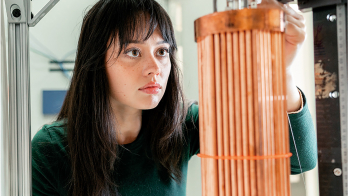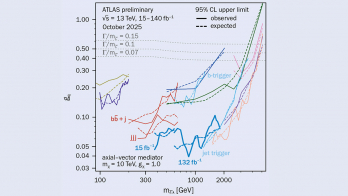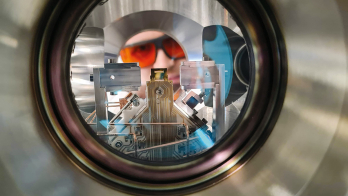The ALICE experiment, which is being prepared for CERN’s Large Hadron Collider, has developed the ALICE production environment (AliEn), which implements many components of the Grid computing technologies that will be needed to analyse ALICE data. Through AliEn, the computer centres that participate in ALICE can be seen and used as a single entity – any available node executes jobs and file access is transparent to the user, wherever in the world a file might be.
For AliEn, the ALICE collaboration has adopted the latest Internet standards for information exchange (known as Web Services), along with strong certificate-based security and authentication protocols. The system is built around open-source components and provides an implementation of a Grid system applicable to cases where handling many distributed read-only files is required.
AliEn aims to offer a stable interface for ALICE researchers over the lifetime of the experiment (more than 20 years). As progress is made in the definition of Grid standards and interoperability, AliEn will be progressively interfaced to emerging products from both Europe and the US. Moreover, it is not specific to ALICE, and has already been adopted by the MammoGrid project (supported by the European Union), which aims to create a pan-European database of mammograms.
ALICE is currently using the system for distributed production of Monte Carlo data at more than 30 sites on four continents. During the last year more than 15,000 jobs have been run under AliEn control worldwide, totalling 25 CPU years and producing 20 Tbyte of data. Information about AliEn is available at http://alien.cern.ch.








